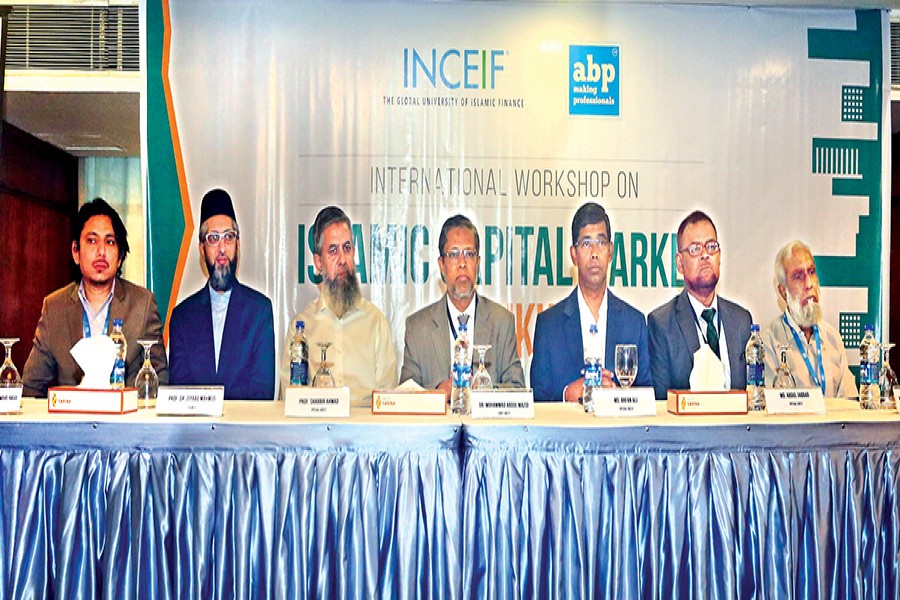The country needs to formulate a comprehensive legal and regulatory framework for getting optimum benefit from the Islamic financing instruments, former chairman of the National Board of Revenue (NBR) Abdul Mazid maintained.
"Bangladesh needs to formulate a comprehensive legal and regulatory framework for Islamic finance," the former bureaucrat said while speaking at the inaugural session of a two-day workshop on 'Islamic Capital Market and Sukuk'.
The Academy of Business Professionals (ABP) and the International Centre for Education in Islamic Finance (INCEIF), Malaysia jointly organised the workshop at a city hotel on Saturday.
Sukuk is an Arabic term for 'financial certificates', which generally referred to bonds that comply with Islamic Shariah law. Sukuk, however, differs in concept and structure from bonds in Western finance.
Mr Mazid noted that the country does not have adequate regulatory framework for Islamic finance, except the banking rules and recent Sukuk rules of the Bangladesh Securities and Exchange Commission (BSEC).
Referring to a study of the World Bank (WB), he said Bangladesh needs an investment of about US$ 300 billion for infrastructural development.
"Numerous infrastructural projects have been financed through Sukuk in many countries, including Malaysia and some African countries."
He felt that Bangladesh can also utilise the Islamic financial instruments to raise fund for various infrastructural projects.
He further said Sukuk has proven its resilience during the recent turbulence in global capital market.
"Since the beginning of 2000, Sukuk has become an important Islamic financial instrument for raising funds or long-term project financing," he added.
The HSBC Amanah Malaysia Shariah Committee Chairman Dr Ziyaad Mahomed said Sukuk is not limited to Muslim majority countries only.
"Many non-Muslim countries have adopted the financial instrument, considering its sustainability and inner sense of fairness," he also said.
The Bank Asia Ltd President and Managing Director Arfan Ali said the capital market in Bangladesh is not doing well.
"This is right time to introduce Sukuk in local capital market."
He also said mismatch between long-term lending and short-term deposit has created havoc in Bangladesh's banking sector.
"Sukuk will help create some balance in capital market and remove mismatch in the banking sector."
Islamic financial instruments can create an environment of justice for all parties involved, he added.
The Dhaka University Department of Finance Professor Sabbir Ahmed said Bangladesh needs a lot of financing sources to continue with its present growth momentum.
"Sukuk and other financial instruments will help us in this regard," he opined.
The ABP Chairman Mohammad Sahid Ullah Mazumder, and the Islami Bank Bangladesh Ltd (IBBL) Deputy Managing Director Abdul Jabbar, among others, also spoke at the session.
With estimated assets worth $31 billion, market research on Islamic finance has positioned Bangladesh as 17th among 131 countries.
The Islamic banks, despite not having a diverse range of products to offer, hold about 24 per cent of the total asset of the local banking sector.
Exploring some of the financial products (like Sukuk), which are widely prevalent in the market, is crucial for Bangladesh now, the participants concurred.


